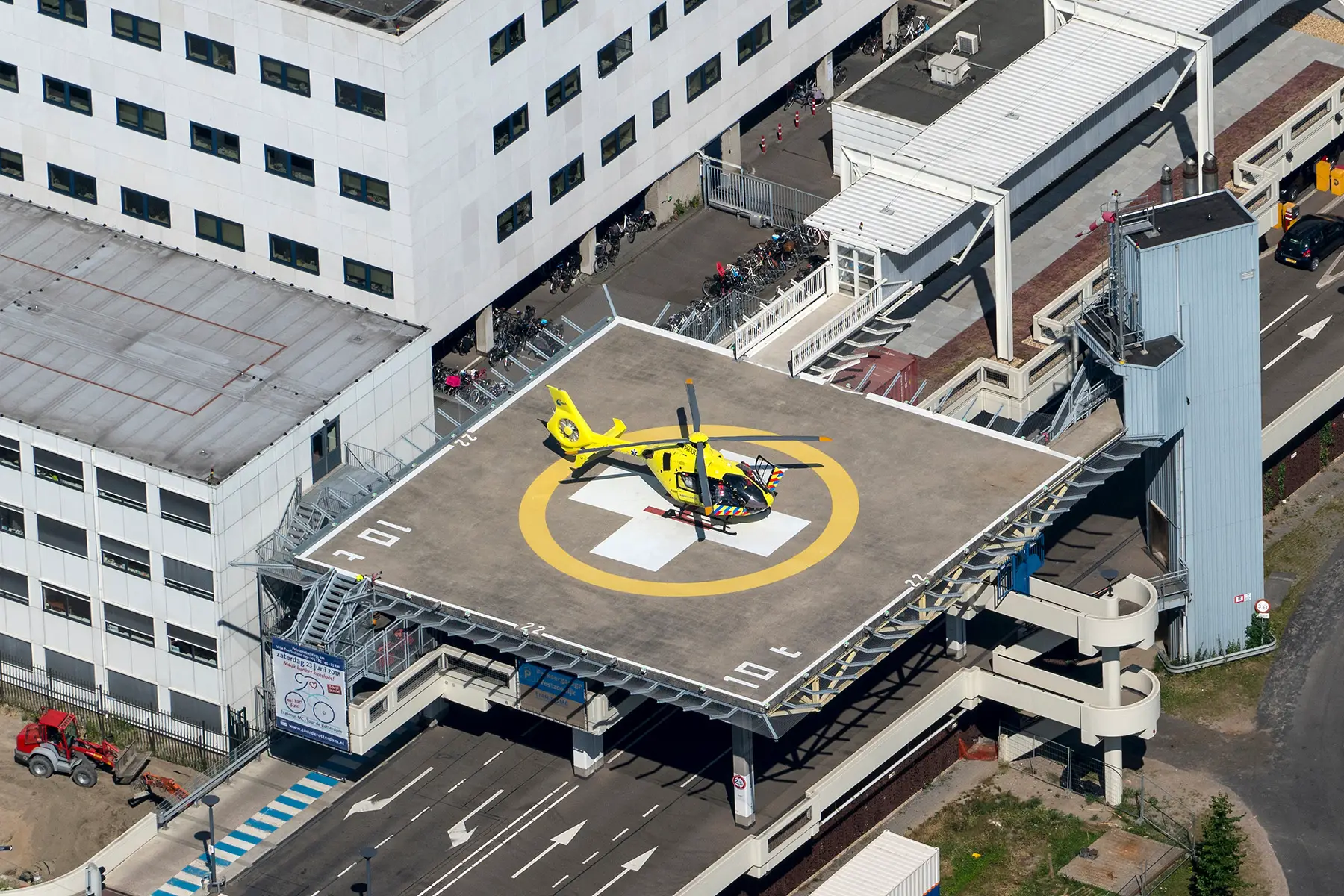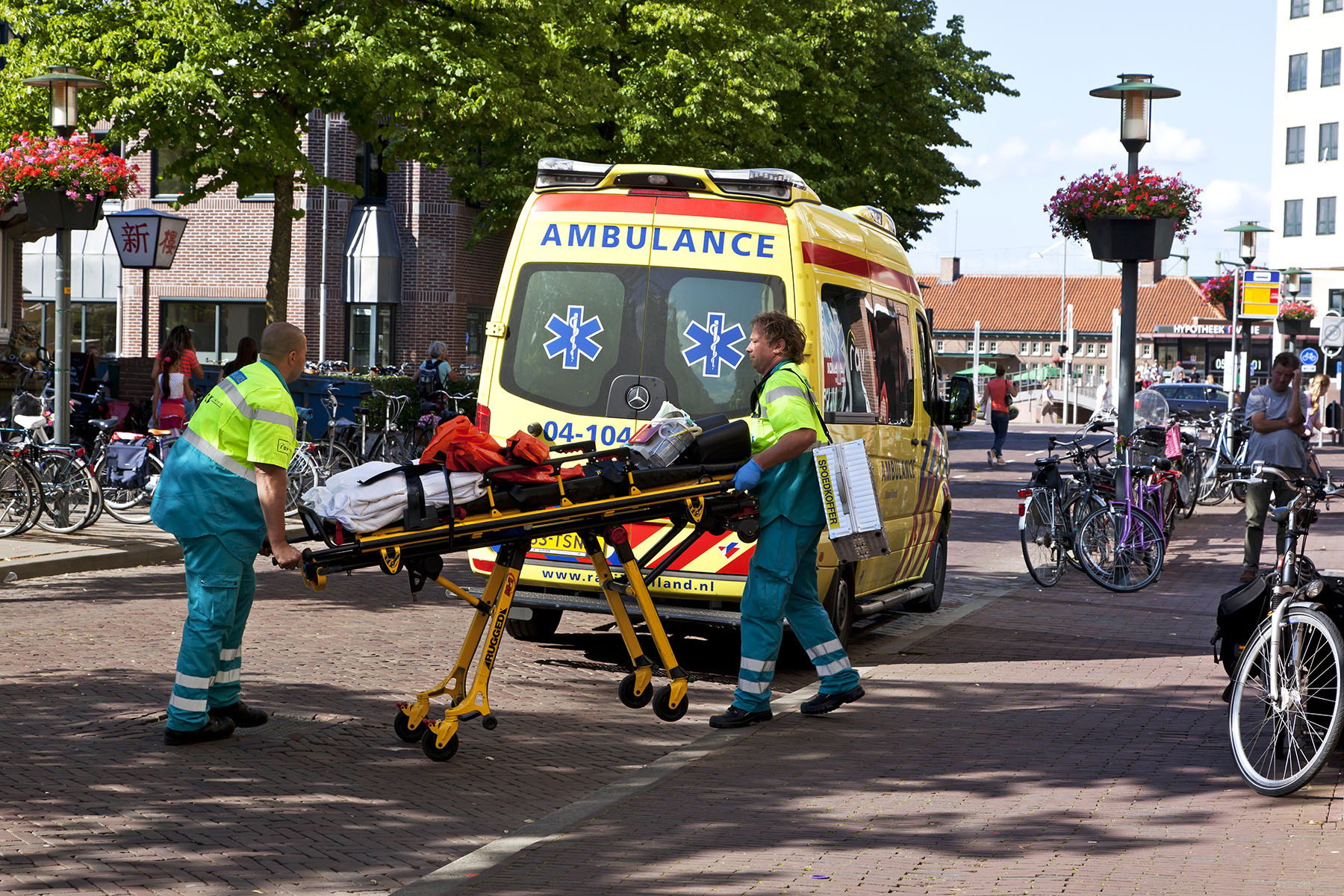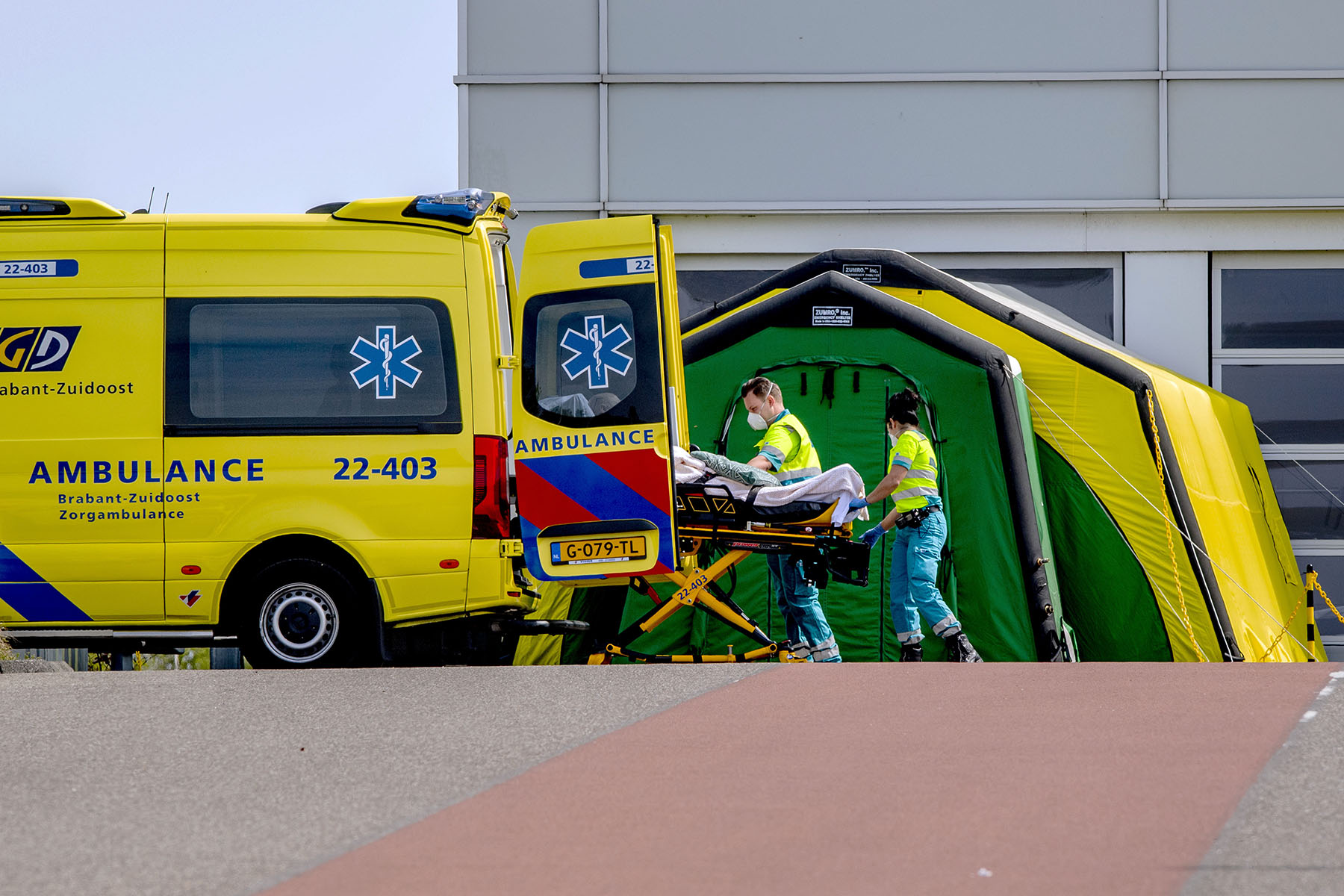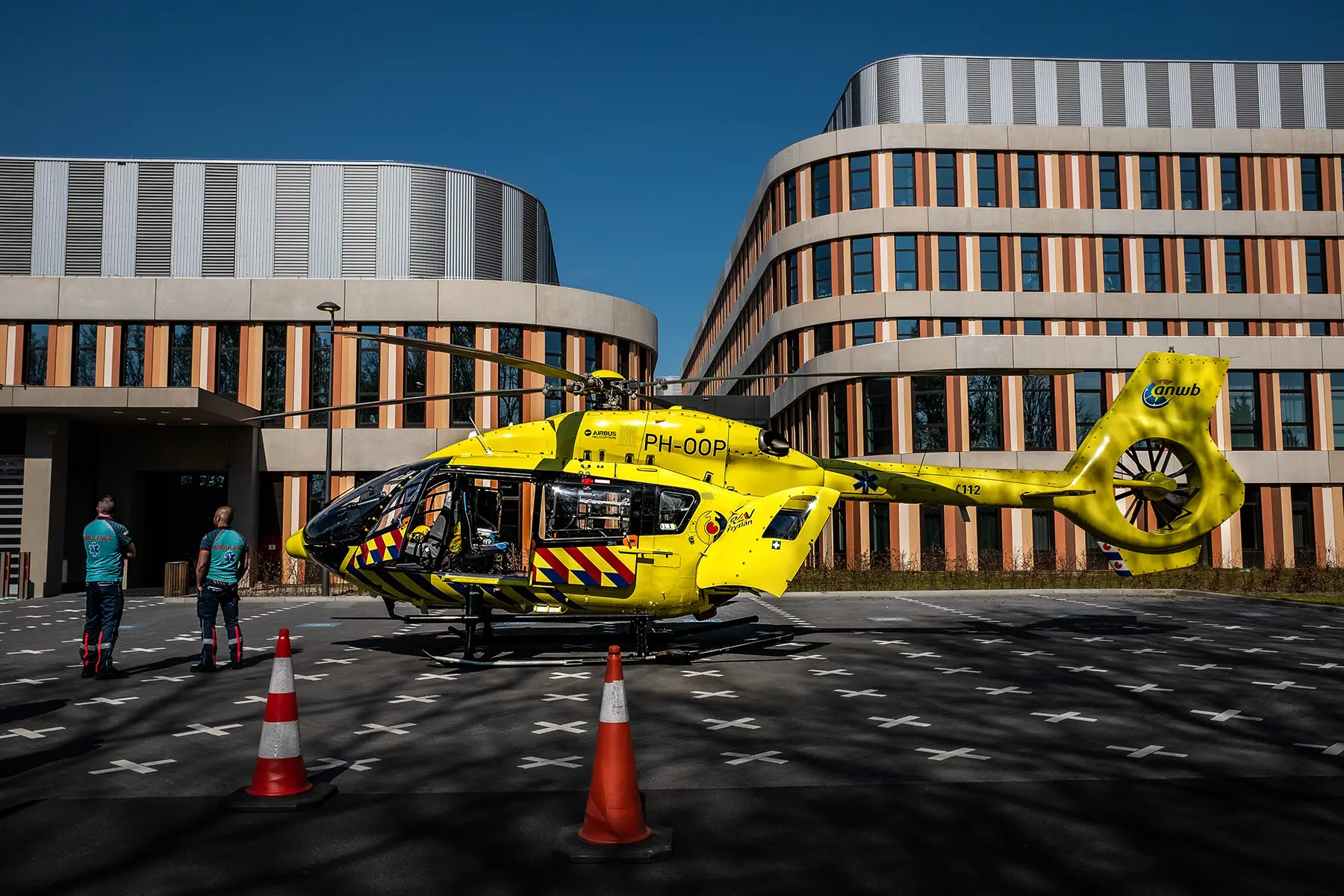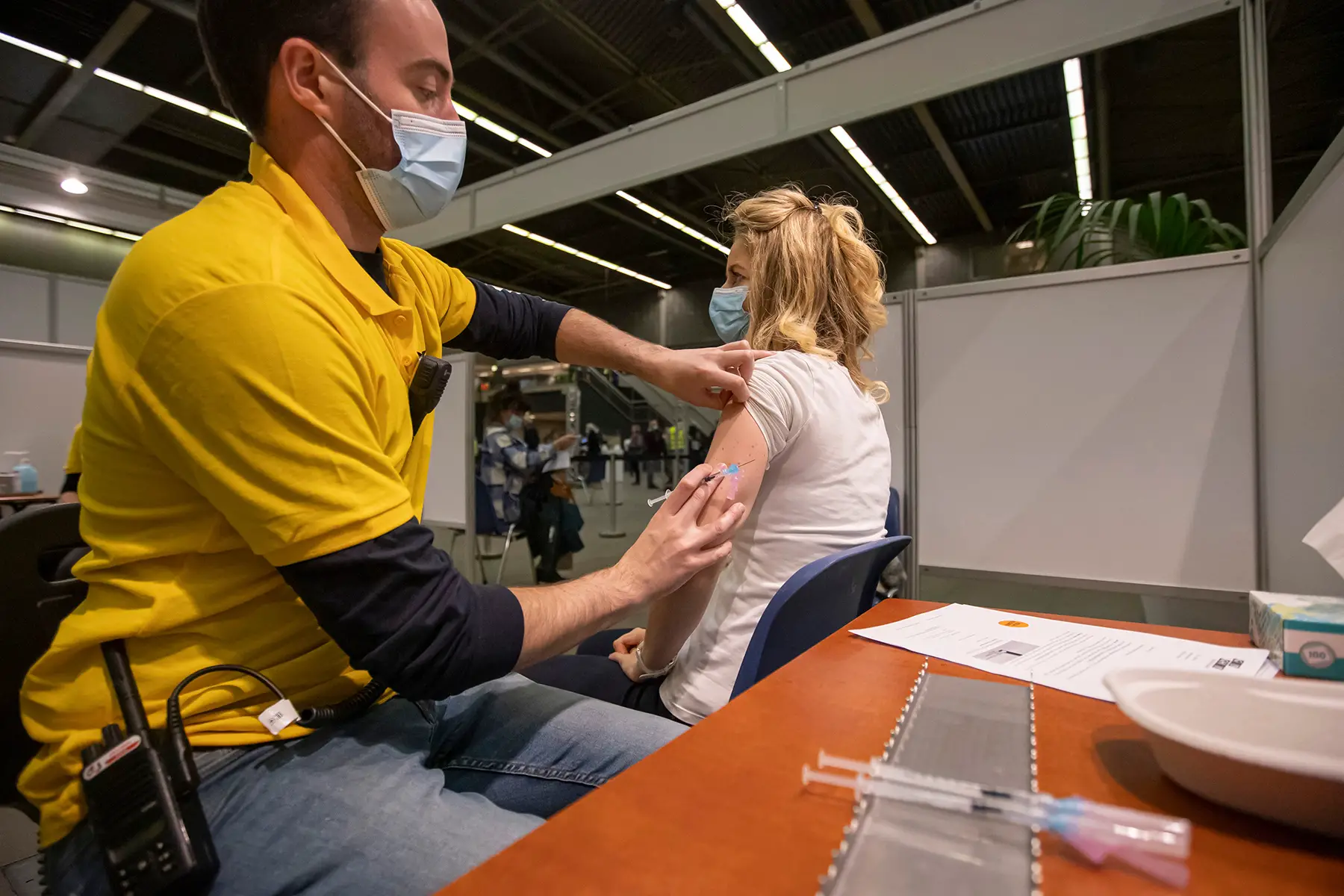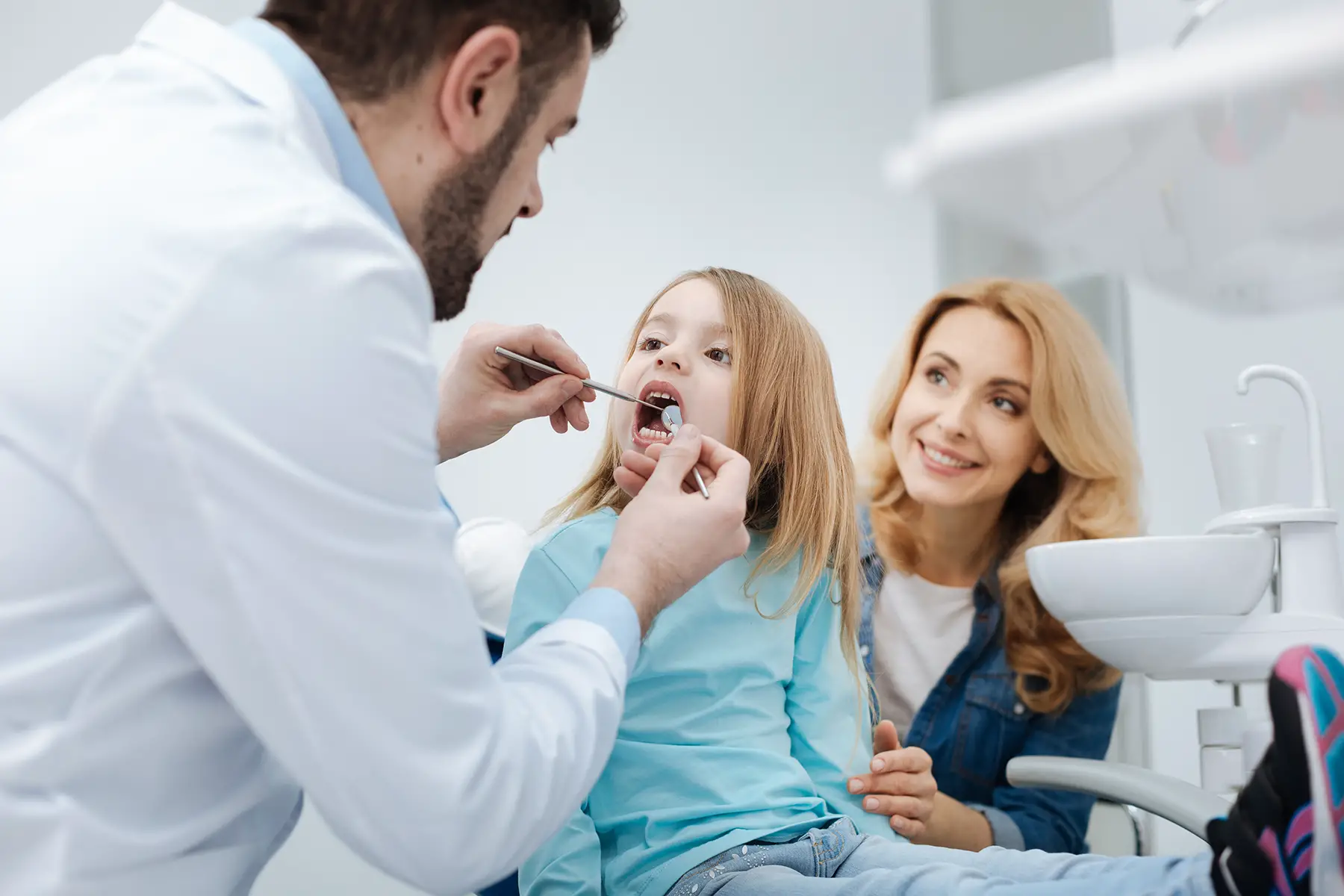Children’s healthcare in the Netherlands is straightforward and well-supported. From regular checkups and vaccines to dental care and mental health services, the system is set up to help kids thrive. And best of all, most of it won’t cost you a cent.
So, whether you’re new to the country or just new to parenting here, here’s what you need to know:
Cigna Global
Enjoy peace of mind while living in the Netherlands with Cigna Global’s long-term international health insurance plans (12+ months). Get tailored coverage, direct billing with many providers, complex case management, and global care on demand, with access to a network of 1.5+ million doctors, specialists, and therapists.
Children’s healthcare in the Netherlands
Children’s healthcare in the Netherlands is well-organized, prevention-focused, and easily accessible, especially once you know how the system works.
From the moment your child is born, you’re invited to regular checkups through the youth healthcare service (Jeugdgezondheidszorg – JGZ). This agency keeps tabs on everything from growth and development to vaccinations and vision care until your child turns 14.

Most medical treatments start with your local family doctor or GP (huisarts), who can refer you to a pediatrician or specialist if needed.
Each municipality in the Netherlands also has its own Centre for Youth and Family (Centrum Jeugd en Gezin) that offers advice on raising children. When required, they can also refer families to support services for social, psychological, or educational needs. Each region varies slightly in terms of how the youth healthcare teams operate, though they are all subject to the same national guidelines.
Is healthcare free for children in the Netherlands?
Yes, healthcare for children in the Netherlands is free, as long as their parents or guardians are registered with a Dutch health insurer. Families don’t pay any additional monthly premiums or deductibles for their kids. Once the child turns 18, they must take out their own health insurance and start paying the associated fees.
Insurers providing healthcare coverage in the Netherlands include:
If you’re unsure of which family health insurance policy is right for you, you can use a comparison website such as Independer to quickly check your options.
Financial support for children’s healthcare costs
While parents don’t pay insurance fees for children, they do have to pay their own insurance premiums (zorgpremie). These can be quite costly; in 2025, the average health premium is €1,904.64 per year (or €158.72 per month).
Low-income families can apply for a healthcare allowance (zorgtoeslag) from the Dutch Tax Office. Depending on your income, you can get €4–131 in healthcare benefits per month (2025). If you have a fiscal partner, you can get €4–250 for the both of you.
For more information, check out our article on health insurance in the Netherlands.
How to access children’s healthcare in the Netherlands
After signing up for health insurance, parents or guardians can register their child with their local GP practice (huisartsenpraktijk). You are free to choose any doctor you want, and you can switch physicians freely. However, the practice must be located close to your home.

Family doctors handle basic pediatric complaints, conduct routine tests, and coordinate follow-up treatments. If need be, they can refer you to a pediatrician or specialist.
For medical issues outside regular opening hours, you can contact the nearest out-of-hours doctors’ service (huisartsenpost). These are open from 17:00 to 08:00 on weekdays, from Friday 17:00 to Monday 08:00 during weekends, and 08:00 to 08:00 on public holidays.
How to get treatment as a non-resident in the Netherlands
Our article on Dutch health insurance covers the topic in more detail, but as a quick summary:
- Temporary visitors from the EU and EFTA (Iceland, Liechtenstein, Norway, and Switzerland), including children, can use their European Health Insurance Card (EHIC) to access healthcare in the Netherlands
- UK nationals can access healthcare through their Global Health Insurance Card (GHIC)
- Citizens from elsewhere must take out a short-term international health insurance policy to cover their stay in the Netherlands
- Long-term residents (people staying for more than 90 days) must take out Dutch health insurance
For non-life-threatening injuries (like a bump to the head, but your child is conscious and alert), you can call a local GP or an out-of-hours doctors’ service. Even if you aren’t registered with a doctor, many regions allow short-term residents to contact them for medical advice or an appointment. Alternatively, you can reach out to the Central Doctors Service (Centrale Doktersdienst) at 0900 1515 for advice on where to go.
In life-threatening emergencies (your child bumped their head and is unconscious or vomiting), call 112 for an ambulance. The EMTs can assess the situation and take you to the nearest hospital emergency room.

Non-resident patients must pay any costs upfront and claim reimbursement afterward through their EHIC/GHIC or travel insurance. Ambulance rides may or may not be covered by your insurance, so it’s wise to check this beforehand. Without coverage, they can cost €700–1,000, depending on the distance and care provided.
Overview of children’s doctors in the Netherlands
Pediatricians and specialists in the Netherlands
In the Netherlands, family doctors treat common healthcare complaints, including those of children. If you or your GP notices anything irregular, they may refer you to a pediatrician (kinderarts) or specialist. These doctors usually work in hospitals or other health centers, depending on their specialty. For example, children’s physiotherapists (kinderfysiotherapeut) are typically available at physio clinics.
Children’s hospitals in the Netherlands
All hospitals in the Netherlands – 113 in 2025 – have dedicated pediatric facilities. The country also has seven specialist children’s hospitals, including:
- Emma Kinderziekenhuis in Amsterdam
- Beatrix Kinderziekenhuis in Groningen
- Willem-Alexander Kinderziekenhuis in Leiden
- Amalia Kinderziekenhuis in Nijmegen
- Erasmus MC Sophia Kinderziekenhuis in Rotterdam
- Juliana Kinderziekenhuis in The Hague
- Princes Maxima Centrum in Utrecht
- Wilhelmina Kinderziekenhuis in Utrecht
Pediatric hospitals are specially equipped to treat young patients. They have pediatric specialists, child-friendly facilities, and staff trained to care for everything from minor injuries to complex conditions in babies, kids, and teens.
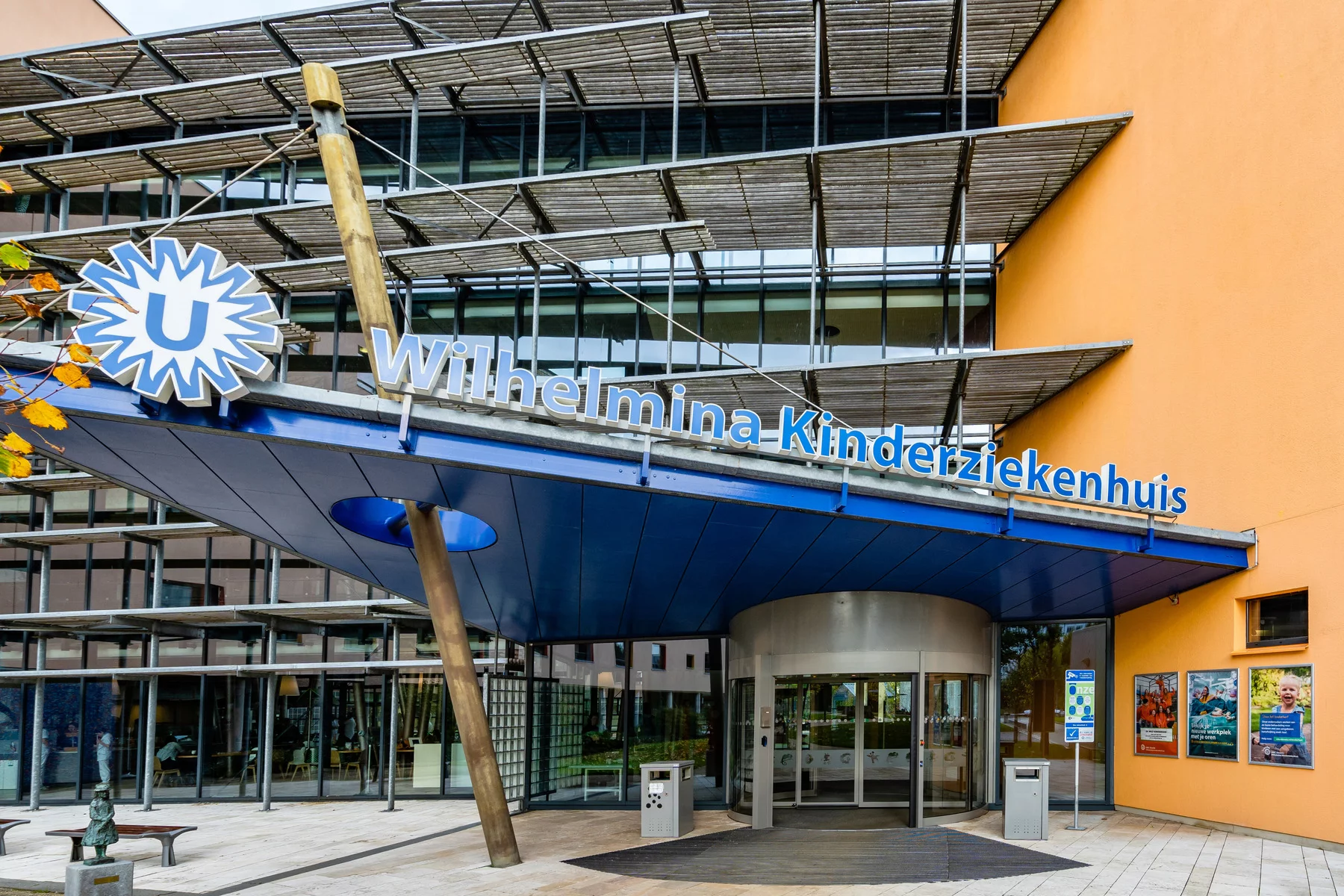
Regardless of the treatment, children’s hospital care is free. If your child is staying overnight and you want to stay nearby, you may be eligible for a discounted rate at a Ronald McDonald House.
What treatments are available to children in the Netherlands?
Children in the Netherlands have access to a wide range of healthcare treatments, including:
Preventative health programs for children
Like we said earlier, children in the Netherlands are invited for regular check-ups by the youth healthcare services. These doctors and nurses monitor your child’s growth and development and provide any possible vaccinations. Although these preventative health services are not mandatory, they’re highly recommended, especially during the first four years.
JGZ services for babies and toddlers are typically available at child health clinics (consultatiebureau). During the first year, you’ll typically see them eight times. Between the ages of 1 and 4, you’re invited for another five appointments, depending on your area.
At the child health clinic, you’ll likely receive the following:
- Support with breastfeeding, weaning, sleeping, and the like
- Routine health checks, including the heel prick test (a blood spot test) for newborns, sight and hearing tests, and growth monitoring
- Parenting advice, including recommendations for local classes and playgroups, and preschool referrals (VVE indication)
- Childhood vaccinations
After your child starts school, child care and their accumulated medical file are transferred to the school doctor, also known as a youth doctor (jeugdarts). These doctors don’t have a permanent presence at the school; instead, they visit on a biannual basis.
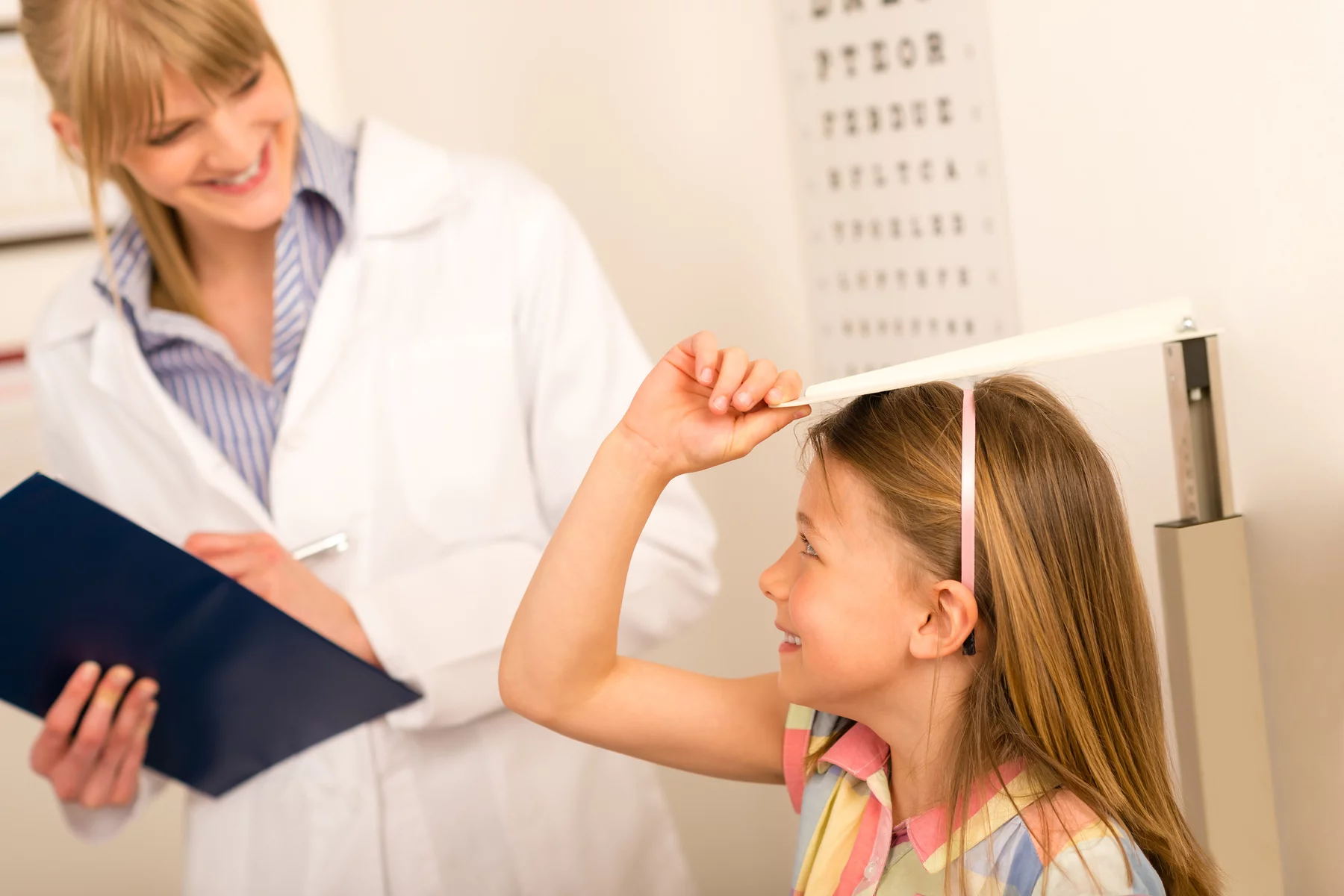
From then on, you’ll receive another invitation to visit three times: when the child is 5, 9, and 14 years old. Again, these visits are not mandatory, and it’s perfectly within your right to ignore the invitation.
Vaccinations for children in the Netherlands
Children receive free vaccinations against 12 infectious diseases, including measles, mumps, rubella, diphtheria, whooping cough, tetanus, and hepatitis B. Although these vaccines aren’t mandatory, they help protect your child and others against preventable diseases.
Around 90.1% of Dutch children are vaccinated (2025), with the lowest vaccination rate in the Dutch ‘Bible belt.’
Once your child is registered for healthcare in the Netherlands, you will automatically receive an invitation to participate in the vaccination program. If your child began their immunizations outside of the country, ask your family GP for advice on how to bring their record in line with the Dutch vaccination program.
For more information on vaccines and the national vaccination schedule, visit our guide to vaccinations in the Netherlands.
Children’s dental care in the Netherlands
Children up to the age of 18 receive free basic dental care, including check-ups, fillings, fluoride treatments, and even root canals. Basic health insurance does not cover braces; parents will need to take out supplementary (top-up) insurance at least two years before their child needs them.
Like with GPs, parents are free to choose any dental practice they want. However, most people choose to stick with one close-by home for practicality and familiarity.
Mental healthcare for Dutch children and teens
Children and teens struggling with their mental health can access free treatment from the Pediatric Mental Health Services (Jeugd-GZZ). These services include child psychologists, psychiatrists, and nurses specialized in children’s psychological development and behavioral issues. They work closely with schools and other youth care organizations, such as Child Protection Services (Jeugdzorg Nederland).

If you are worried about your child’s mental health, the first step is to discuss this with your GP. They can refer you to any number of dedicated mental healthcare organizations in the Netherlands. You can also schedule an appointment with a child psychologist directly, though you get more reimbursement with a referral.
Children can also contact the free Child Support Helpline (0800 0432) for support and advice. And if your parents are getting a divorce, you can sign up for the buddy program at Villa Pinedo. That way, you get in contact with another child who has experienced the same.
Useful resources
- Pediatric Mental Health Services – website of the public mental healthcare services for children in the Netherlands
- Ouder-en Kindteam – website of the child health clinic in Amsterdam
- CJG Rijnmond – website of the child health clinic in Rotterdam
- Centrum Jeugd & Gezin – website of the child health clinic in The Hague
- Jeugd en Gezin – website of the child health clinic in Utrecht
- Child Support Helpline – website of the free child helpline in the Netherlands
- ZorgkaartNederland – directory of healthcare services in the Netherlands


